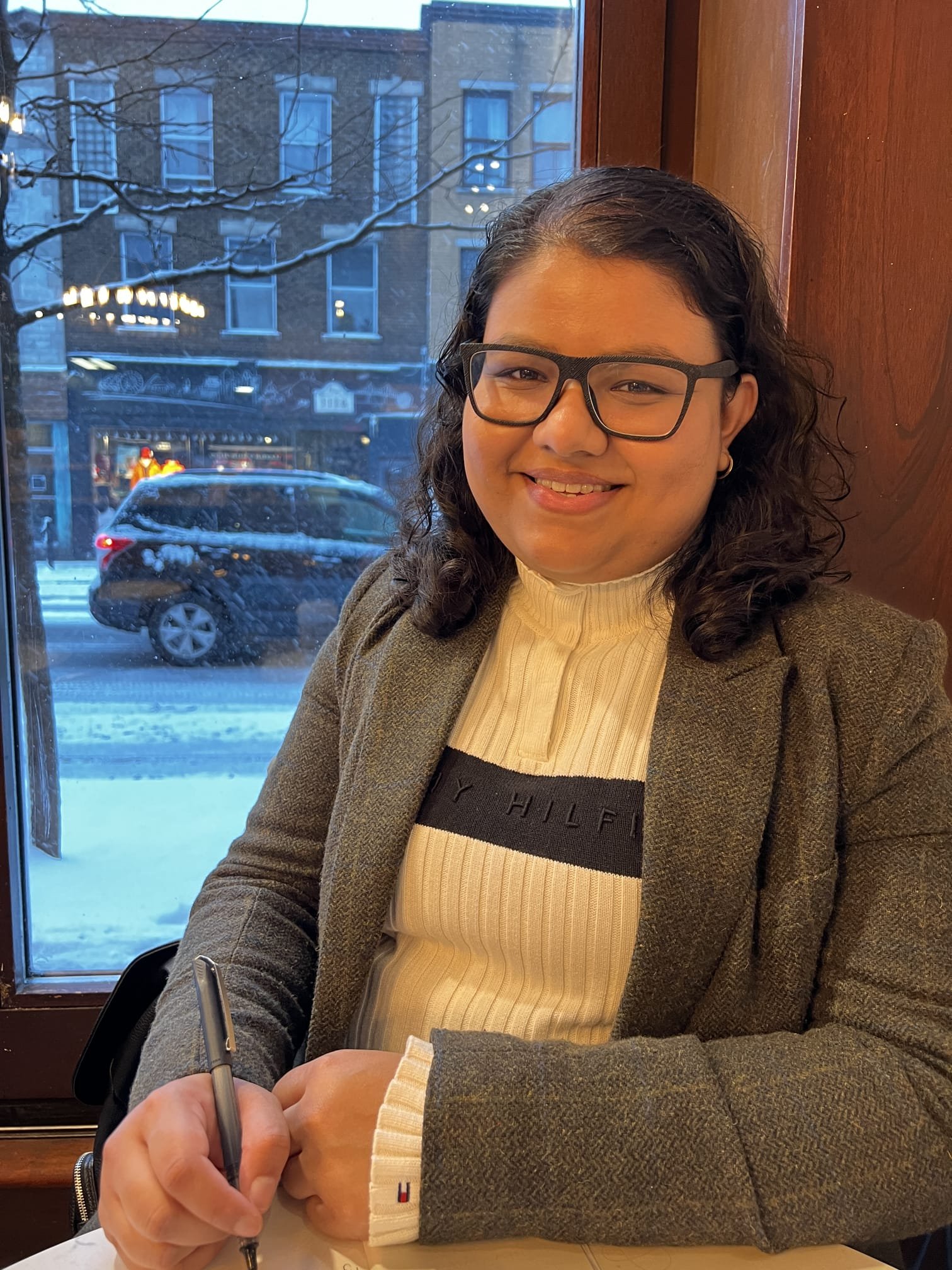URBI KHAN
Editorial Research Producer and Investigative Journalist
Urbi Khan is an editorial research producer and investigative journalist at through food. Her reporting focuses on how food reveals power, survival, and the systems shaping daily life, centred on the people who grow, cook, and share it to keep communities strong.
A graduate of Toronto Metropolitan University’s journalism program—with additional studies at Curtin University in Australia—she began her career at the Toronto Star during the early days of the COVID-19 pandemic, where she co-led a series on Ontario’s nursing crisis. Her reporting has appeared in The Narwhal, The Globe and Mail, THIS Magazine, and Exclaim!. She has also contributed research and fact-checking to major investigative features across Canadian media.
Born in Dhaka, Bangladesh and raised in Whitby, Ontario, Urbi’s relationship with food was shaped by migration, care, and control. Her mother believed in “safe foods”, home-cooked meals with no additives, no restaurants, no risks—which stemmed from Urbi’s older brother's food allergies. Weekends with her dad were different: frozen pizza, meat pies, fish and chips. But during summertime, he turned up the heat and made spicy kebabs. Urbi and her younger brother would battle over who could handle the hottest sauce with their chicken wings. When her nanu visited from New York, they’d stock up at Bangladeshi grocers in Toronto, and the kitchen would shift again—kochur loti, daler bora. Urbi speaks five languages—Bengali, Urdu, Hindi, French, and English—and her memories live in all of them.
As Urbi got older and became more curious about food, her mother also started a backyard garden as a way to care for her mental health. It was something she’d picked up from her father, who was North Indian and cared deeply about the land. Urbi would stand nearby and take notes.
After being diagnosed with PCOS in high school, Urbi spent years trying to feel better in her body. She leaned into a mostly vegetarian diet to manage her symptoms and began experimenting with what she thought of as “clean” eating. It turned into a kind of health obsession that echoed her mother’s “safe food” habits. Her skin cleared, her body stabilized.
But something still felt off. Even as her health improved, she felt more and more disconnected from her cravings, her culture, and comfort foods. That dissonance led to a deeper questioning of what health food really means and who it’s actually made for.
Urbi’s reporting on food uses food to report on everything else. Tracing food from soil to plate, from labour to legislation. She sees journalism as a form of care, asking not only where our food comes from, but what gets hidden or left out along the way. Whether she’s talking with farmers or unpacking trade policy, she looks for the systems hiding in plain sight—and the people too often left out of the story.


